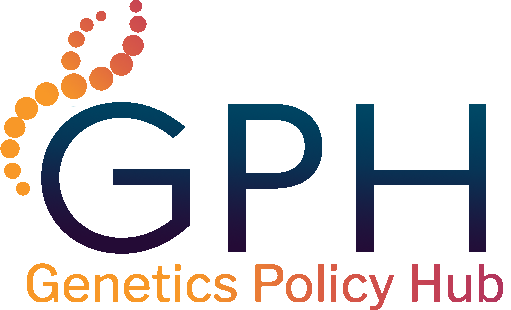From 2004 to 2024, the Health Resources and Services Administration (HRSA) funded the National Coordinating Center for the Regional Genetics Networks (NCC). NCC developed and maintained the Genetics Policy Hub.
With the conclusion of NCC funding, the Genetics Policy Hub (GPH) will no longer be updated or maintained. Information on GPH should be used for historical reference only.
Massachusetts
This data is meant to be used for educational purposes to inform providers, patients, insurers, and state Medicaid agencies what genetic services may or may not be written into each state’s Medicaid policy. The database is not meant to indicate or imply whether a certain program will cover a specific service, since many decisions are made on a case by case basis. If you have specific questions about whether a service is covered, you should reach out to your plan administrator. Please see this disclaimer below for more information.
Medicaid Coverage Information Published
State Contact Information
Mike Levine
Secretary for MassHealth
Office of Medicaid
Massachusetts Department of Health and HumanServices
1 Ashburn Place, 11th Floor, Room 1109
Boston, MA 02108
Phone: (617) 573-1770
https://medicaiddirectors.org/wp-content/uploads/2023/06/Public_DirectorsList_June2023-1.pdf
General Genetic Testing Criteria
Genetic Testing Not Covered
MassHealth does not consider genetic testing for BRCA-related cancer to be medically necessary under certain circumstances. Examples of such circumstances include, but are not limited to, the following:
- Genetic testing is being performed primarily for the medical management of a family member;
- The only indication for testing is family history, and clinical judgment indicates that the member does not have a reasonable likelihood of having a BRCA/PALB2-pathogenic/likely pathogenic variant, considering the member’s current age and the age of female unaffected relatives who link the member with the affected relatives; or
- The member has been previously tested.
State Specific Definition
Genetic Services for Children
Genetic Counseling Requirement
Licensure is required. For more information visit: https://www.mass.gov/how-to/apply-for-a-full-genetic-counselor-license
Metabolic Formula Coverage Legislation
130 CMR 409.000 and 450.204
Metabolic Formula Coverage & Criteria
MassHealth bases its determination of medical necessity for enteral nutrition products on clinical data, including but not limited to, indicators that would affect the relative risks and benefits of the products. These criteria include, but are not limited to, the following.
- Enteral nutrition, whether orally or by tube feeding, is used as a therapeutic regimen to prevent or treat serious disability, or to prevent death, in a member with a medically diagnosed condition that precludes the full use of
regular food. - The member presents clinical signs and symptoms of impaired digestion, malabsorption, or nutritional risk, as indicated by the following anthropometric measures:
- weight loss that presents actual, or potential for developing, malnutrition as defined below:
- in adults, showing involuntary or acute weight loss of greater than or equal to 10 percent of usual body weight during a three-to-six-month period, or body mass index (BMI) below 18.5 kg/m2;
- in neonates, infants, and children, showing
- very low birth weight (VLBW <1500g) even in the absence of gastrointestinal, pulmonary, or cardiac disorders;
- a lack of weight gain, or weight gain less than two standard deviations below the ageappropriate mean in a one-month period for children under six months, or two-month period for children aged six to 12 months;
- no weight gain or abnormally slow rate of gain for three months for children older than one year, or documented weight loss that does not reverse promptly with instruction in appropriate diet for age; or
- weight for height less than the 10th percentile; and
- abnormal laboratory tests pertinent to the diagnosis.
- weight loss that presents actual, or potential for developing, malnutrition as defined below:
- The risk factors for actual or potential malnutrition have been identified and documented. Such risk factors include, but are not limited to, the following:
- anatomic structures of the gastrointestinal tract that impair digestion and absorption;
- neurological disorders that impair swallowing or chewing;
- diagnosis of inborn errors of metabolism that require food products modified to be low in protein (for example, phenylketonuria (PKU), tyrosinemia, homocystinuria, maple syrup urine disease, propionic aciduria, and methylmalonic aciduria);
- intolerance or allergy to standard milk-based or soy infant formulas (for example, diarrhea, bloody stool, excessive gas, abdominal pain, severe GERD, severe eczema) that have improved with a trial of specialized formula;
- prolonged nutrient losses due to malabsorption syndromes or short-bowel syndromes, diabetes, celiac disease, chronic pancreatitis, renal dialysis, draining abscess or wounds, etc.;
- treatment with anti-nutrient or catabolic properties (for example, anti-tumor treatments, corticosteroids, immunosuppressants, etc.);
- increased metabolic and/or caloric needs due to excessive burns, infection, trauma, prolonged fever, hyperthyroidism, or illnesses that impair caloric intake and/or retention; or
- a failure-to-thrive diagnosis that increases caloric needs while impairing caloric intake and/or retention.
- A recent (within the past year) comprehensive medical history and a physical examination and, if applicable, laboratory tests have been conducted to detect factors contributing to nutritional risk
- Enteral nutrition is indicated as the primary source of nutritional support essential for the management of risk factors that impair digestion or malabsorption, and for the management of surgical preparation or postoperative care.
Prior Authorization Requirements
Prior Authorization Forms
Fee Schedule
BRCA Testing Coverage
Yes
Requirements for BRCA
MassHealth considers genetic testing for BRCA-related cancer medically necessary once per lifetime in any of the following categories of high-risk adults. MassHealth bases its determination of medical necessity for genetic testing for BRCA-related cancer on clinical data including, but not limited to, indicators that would affect the relative risks and benefits of genetic testing for BRCA-related cancer. These criteria include the following.
- The member is 18 years of age or older; AND
- The results of genetic testing will be clinically useful (i.e., will provide added value compared with not using the test) in the clinical management of the member; AND
- The member has given prior written consent for genetic testing in accordance with Massachusetts General Laws Chapter 111, Section 70G; AND
- The member’s personal and/or family cancer history suggests that an inherited pathogenic/likely pathogenic variant in BRCA1, BRCA2, or PALB2 may exist by meeting criteria for one of the following categories of genetic test (I, II, III, or IV) for BRCA-related cancer:
Category I. Family with a Known BRCA1/BRCA2/PALB2 Variant:
MassHealth covers BRCA1, BRCA2, and PALB2 genetic testing for susceptibility to breast or ovarian cancer in adults as medically necessary with single-site analysis for the known familial variant (Current Procedural Terminology [CPT]® codes 81215, 81217, 81307, 81308) for a biologically related individual from a family with a known BRCA1, BRCA2, or PALB2 pathogenic/ likely pathogenic variant when a recommendation for testing is confirmed in accordance with the criteria previously listed. Documentation of the known familial variant and relationship of the carrier(s) to the member is required.
Category II. Individuals with Active Cancer or a Personal History of Cancer:
Genetic testing for BRCA1, BRCA2, and PALB2 variants (including large genomic rearrangement testing (i.e., BART) in cancer-affected individuals when the BRCA variant status is unknown may be considered medically necessary when there has been appropriate genetic counseling, and any of the following criteria (A.-G.) are met.
The member has a personal history of breast cancer AND one or more of the following.
- Diagnosed at age ≤ 45 years; OR
- Diagnosed at age 46–50 years with
- An additional breast cancer primary (at any age); OR
- One or more close blood relatives with breast cancer at any age; OR
- One or more close blood relatives with high-grade prostate cancer; OR
- An unknown or limited family history, defined as having fewer than two known first degree or second-degree female relatives or female relatives surviving beyond 45 years of age on either or both sides of the family (e.g., member who is adopted); OR
- Diagnosed at age ≤ 60 years with a triple negative breast cancer (ER-, PR-, HER2-); OR
- Diagnosed at any age with:
- One or more close blood relatives with any of the following: female breast (age ≤50 years), ovarian, pancreatic, metastatic prostate, or male breast cancer, OR
- Two or more additional diagnoses of breast cancer at any age in patient and/or close blood relatives; OR
- Ashkenazi Jewish ancestry
Personal history of high-grade prostate cancer diagnosed at any age with
- Ashkenazi Jewish ancestry; OR
- One or more close blood relatives with any of the following: ovarian, pancreatic, breast (age <50 years), or metastatic prostate cancer; OR
- Two or more close blood relatives with breast or prostate cancer (any grade) at any age.
Personal history of male breast cancer; OR
Personal history of ovarian carcinoma; OR
Personal history of pancreatic cancer; OR
Personal history of metastatic prostate cancer; OR
BRCA1 or 2, PALB2, pathogenic/likely pathogenic variant detected by tumor-profiling on any tumor type in the absence of germline pathogenic/likely pathogenic variant analysis.
Category III. Individuals with No Personal History of the Following BRCA-Related Cancers: Breast, Ovarian, Pancreatic, or Prostate:
Testing of an individual without a cancer diagnosis should be considered only when an appropriate family member is unavailable for testing. Genetic testing for BRCA1,B RCA2, and PALB2 variants (including large genomic rearrangement testing (i.e., BART) of cancer-unaffected individuals with unknown variant status) may be considered medically necessary when the treating provider has documented genetic counseling and a determination that the patient is high-risk for a BRCA/PALB2 variant through use of a validated quantitative risk assessment tool endorsed by the U.S. Preventive Services Task Force (USPSTF). The tool used and responses to the screening that compose the positive scoring must be specified. The thresholds for positive screens of the seven USPSTF-endorsed screening tools are listed below (if available).
- Ontario Family History Assessment Tool (FHAT): Score of ≥ 10
- Manchester Scoring System: Score of 10 in either column or combined score of 15 for both columns
- Referral Screening Tool (RST): Presence of ≥ 2 items
- Pedigree Assessment Tool (PAT): Score of ≥ 8
- Family History Screen 7 (FHS-7): ≥ 1 positive response
- International Breast Cancer Intervention Study Instrument (Tyrer-Cuzick): risk greater than 10%
- Brief versions of BRCAPRO
Category IV: Adults Considering Treatment with a PARP-Inhibitor:
Please refer to the MassHealth Drug List website for PA criteria for PARP-inhibitors. Criteria is available for Lynparza (Olaparib), Rubraca (rucaparib), and Talzenna (talazoparib).
Cystic Fibrosis Screening
Coverage is available, but criteria is unknown.
Hereditary Cancer Testing Coverage
Coverage is available, but criteria is unknown.
Lynch Syndrome Testing Coverage
Coverage is available, but criteria is unknown.
Microarray Testing
Coverage is available, but criteria is unknown.
Newborn Screening
Yes, this is covered as part of EPSDT.
Panel Testing
Coverage is available. Listed genetic panels include but are not limited to:
- Aortic dysfunction or dilation (eg, Marfan syndrome, Loeys Dietz syndrome, Ehler Danlos syndrome type IV, arterial tortuosity syndrome); genomic sequence analysis panel, must include sequencing of at least 9 genes, including FBN1, TGFBR1, TGFBR2, COL3A1, MYH11, ACTA2, SLC2A10, SMAD3, and MYLK
- Ashkenazi Jewish associated disorders (eg, Bloom syndrome, Canavan disease, cystic fibrosis, familial dysautonomia, Fanconi anemia group C, Gaucher disease, Tay-Sachs disease), genomic sequence analysis panel, must include sequencing of at least 9 genes, including ASPA, BLM, CFTR, FANCC, GBA, HEXA, IKBKAP, MCOLN1, and SMPD1
- Cardiac ion channelopathies (eg, Brugada syndrome, long QT syndrome, short QT syndrome, catecholaminergic polymorphic ventricular tachycardia); genomic sequence analysis panel, must include sequencing of at least 10 genes, including ANK2, CASQ2, CAV3, KCNE1, KCNE2, KCNH2, KCNJ2, KCNQ1, RYR2, and SCN5A
- Epilepsy genomic sequence analysis panel, must include analyses for ALDH7A1, CACNA1A, CDKL5, CHD2, GABRG2, GRIN2A, KCNQ2, MECP2, PCDH19, POLG, PRRT2, SCN1A, SCN1B, SCN2A, SCN8A, SLC2A1, SLC9A6, STXBP1, SYNGAP1, TCF4, TPP1, TSC1, TSC2, and ZEB2
- Hearing loss (eg, nonsyndromic hearing loss, Usher syndrome, Pendred syndrome); genomic sequence analysis panel, must include sequencing of at least 60 genes, including CDH23, CLRN1, GJB2, GPR98, MTRNR1, MYO7A, MYO15A, PCDH15, OTOF, SLC26A4, TMC1, TMPRSS3, USH1C, USH1G, USH2A, and WFS1
- Hereditary breast cancer-related disorders (eg, hereditary breast cancer, hereditary ovarian cancer, hereditary endometrial cancer); genomic sequence analysis panel, must include sequencing of at least 10 genes, always including BRCA1, BRCA2, CDH1, MLH1, MSH2, MSH6, PALB2, PTEN, STK11, and TP53
- Hereditary retinal disorders (eg, retinitis pigmentosa, Leber congenital amaurosis, cone-rod dystrophy), genomic sequence analysis panel, must include sequencing of at least 15 genes, including ABCA4, CNGA1, CRB1, EYS, PDE6A, PDE6B, PRPF31, PRPH2, RDH12, RHO, RP1, RP2, RPE65, RPGR, and USH2A
- Hereditary colon cancer disorders (eg, Lynch syndrome, PTEN hamartoma syndrome, Cowden syndrome, familial adenomatosis polyposis); genomic sequence analysis panel, must include sequencing of at least 10 genes, including APC, BMPR1A, CDH1, MLH1, MSH2, MSH6, MUTYH, PTEN, SMAD4, and STK11
- Hereditary neuroendocrine tumor disorders (eg, medullary thyroid carcinoma, parathyroid carcinoma, malignant pheochromocytoma or paraganglioma); genomic sequence analysis panel, must include sequencing of at least 6 genes, including MAX, SDHB, SDHC, SDHD, TMEM127, and VHL
- Hereditary cardiomyopathy (eg, hypertrophic cardiomyopathy, dilated cardiomyopathy, arrhythmogenic right ventricular cardiomyopathy), genomic sequence analysis panel, must include sequencing of at least 5 cardiomyopathy-related genes (eg, DSG2, MYBPC3, MYH7, PKP2, TTN)
- Nuclear encoded mitochondrial genes (eg, neurologic or myopathic phenotypes), genomic sequence panel, must include analysis of at least 100 genes, including BCS1L, C10orf2, COQ2, COX10, DGUOK, MPV17, OPA1, PDSS2, POLG, POLG2, RRM2B, SCO1, SCO2, SLC25A4, SUCLA2, SUCLG1, TAZ, TK2, and TYMP
- Noonan spectrum disorders (eg, Noonan syndrome, cardiofacio-cutaneous syndrome, Costello syndrome, LEOPARD syndrome, Noonan-like syndrome), genomic sequence analysis panel, must include sequencing of at least 12 genes, including BRAF, CBL, HRAS, KRAS, MAP2K1, MAP2K2, NRAS, PTPN11, RAF1, RIT1, SHOC2, and SOS1
- Genetic testing for severe inherited conditions (eg, cystic fibrosis, Ashkenazi Jewish-associated disorders [eg, Bloom syndrome, Canavan disease, Fanconi anemia type C, mucolipidosis type VI, Gaucher disease, Tay-Sachs disease], beta hemoglobinopathies, phenylketonuria, galactosemia), genomic sequence analysis panel, must include sequencing of at least 15 genes (eg, ACADM, ARSA, ASPA, ATP7B, BCKDHA, BCKDHB, BLM, CFTR, DHCR7, FANCC, G6PC, GAA, GALT, GBA, GBE1, HBB, HEXA, IKBKAP, MCOLN1, PAH)
- Targeted genomic sequence analysis panel, solid organ neoplasm, DNA analysis, and RNA analysis when performed, 5-50 genes (eg, ALK, BRAF, CDKN2A, EGFR, ERBB2, KIT, KRAS, NRAS, MET, PDGFRA, PDGFRB, PGR, PIK3CA, PTEN, RET), interrogation for sequence variants and copy number variants or rearrangements, if performed
- Hereditary peripheral neuropathies (eg, Charcot-Marie-Tooth, spastic paraplegia), genomic sequence analysis panel, must include sequencing of at least 5 peripheral neuropathy-related genes (eg, BSCL2, GJB1, MFN2, MPZ, REEP1, SPAST, SPG11, SPTLC1)
- Targeted genomic sequence analysis panel, hematolymphoid neoplasm or disorder, DNA analysis, and RNA analysis when performed, 5-50 genes (eg, BRAF, CEBPA, DNMT3A, EZH2, FLT3, IDH1, IDH2, JAK2, KRAS, KIT, MLL, NRAS, NPM1, NOTCH1), interrogation for sequence variants, and copy number variants or rearrangements, or isoform expression or mRNA expression levels, if performed
- Whole mitochondrial genome (eg, Leigh syndrome, mitochondrial encephalomyopathy, lactic acidosis, and strokelike episodes [MELAS], myoclonic epilepsy with ragged-red fibers [MERFF], neuropathy, ataxia, and retinitis pigmentosa [NARP], Leber hereditary optic neuropathy [LHON]), genomic sequence, must include sequence analysis of entire mitochondrial genome with heteroplasmy detection
- X-linked intellectual disability (XLID) (eg, syndromic and nonsyndromic XLID); genomic sequence analysis panel, must include sequencing of at least 60 genes, including ARX, ATRX, CDKL5, FGD1, FMR1, HUWE1, IL1RAPL, KDM5C, L1CAM, MECP2, MED12, MID1, OCRL, RPS6KA3, and SLC16A2
Pharmacogenetic Testing
Coverage is available, but criteria is unknown.
Prenatal Testing Offered
Coverage is available for:
- Fetal chromosomal aneuploidy (eg, trisomy 21, monosomy X) genomic sequence analysis panel, circulating cell-free fetal DNA in maternal blood, must include analysis of chromosomes 13, 18, and 21
- Fetal chromosomal microdeletion(s) genomic sequence analysis (eg, DiGeorge syndrome, Cri-du-chat syndrome), circulating cell-free fetal DNA in maternal blood
Whole Exome Sequencing
Other Tests Covered
See fee schedule for a list of all genetic tests covered.
Other Information
Resources
Newborn Screening Reimbursement

Disclaimer: The information contained in the database has been obtained from sources believed to be reliable but NCC has not attempted to validate or confirm the information. The database may be updated periodically. However, the accuracy and completeness of the information contained in the database cannot be, and is not, guaranteed. NCC makes no warranty of the accuracy, completeness or timeliness of this information, and shall not be liable for any decision made in reliance on this information. It is the user’s responsibility to verify this information by contacting the state Medicaid agency directly.
The database contains links to third-party websites. These links are provided solely as a convenience to users and not as a guarantee, warrantee, or recommendation by NCC of the content on such third-party websites or as an indication of any affiliation, sponsorship or endorsement of such third party websites. NCC is not responsible for the content of linked third-party sites and does not make any representations regarding the privacy practices of, or the content or accuracy of materials on, such third-party websites. If you decide to access linked third-party websites, you do so at your own risk. Your use of third-party websites is subject to the terms of use for such sites.

